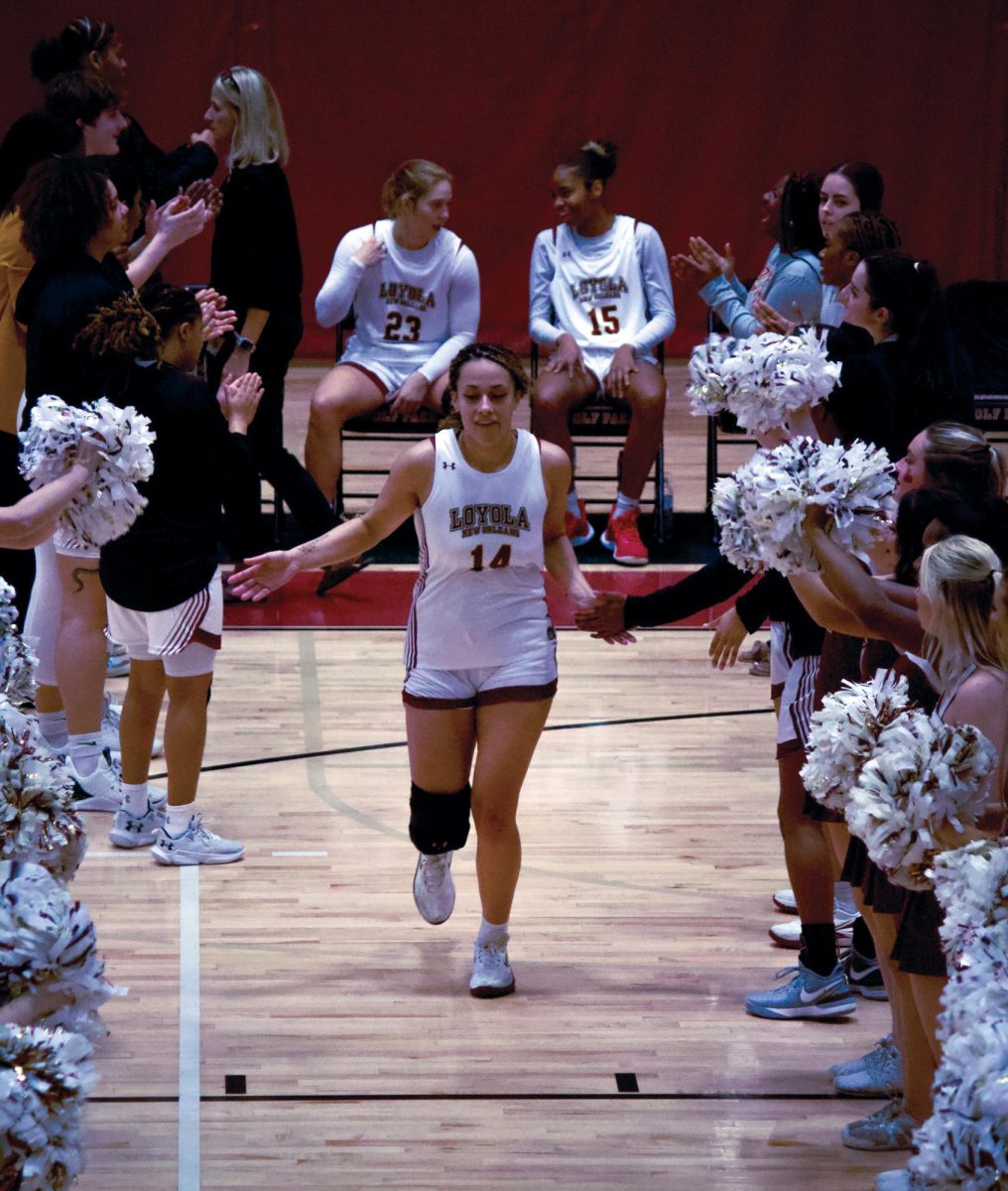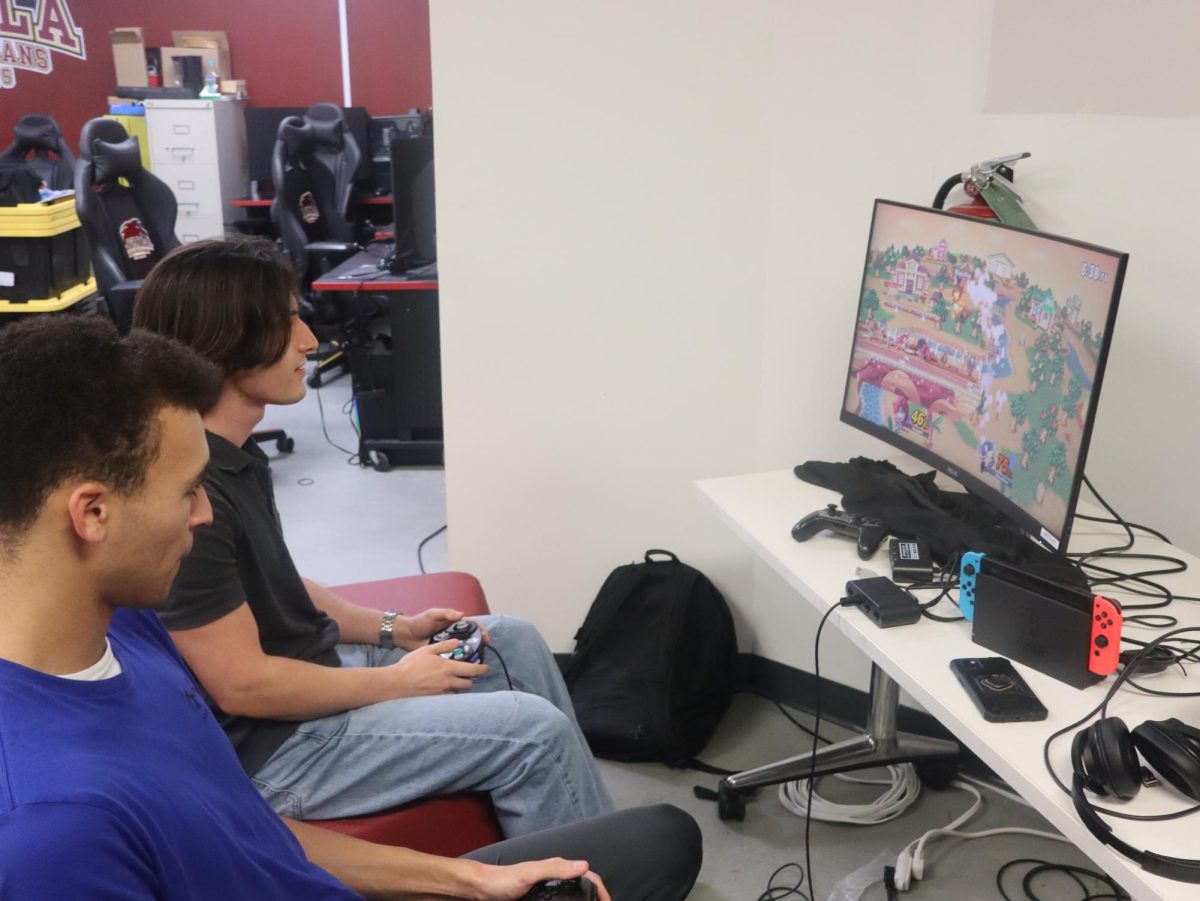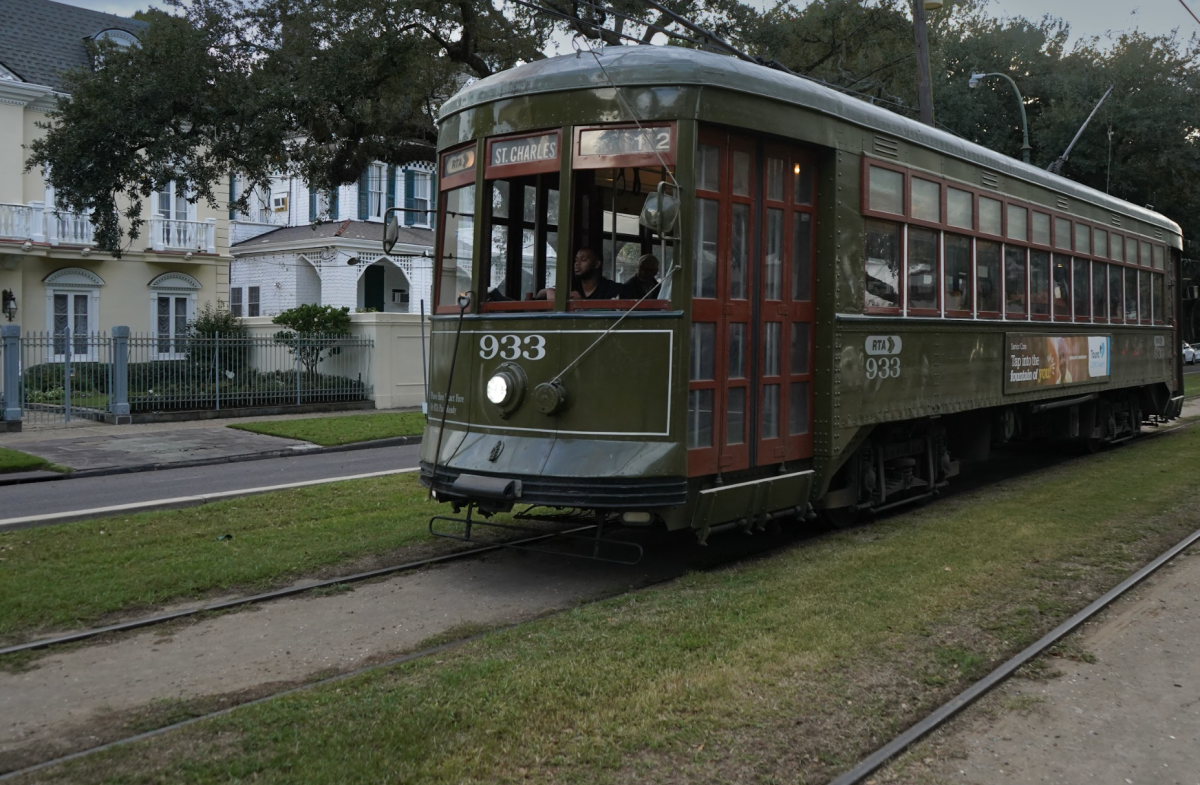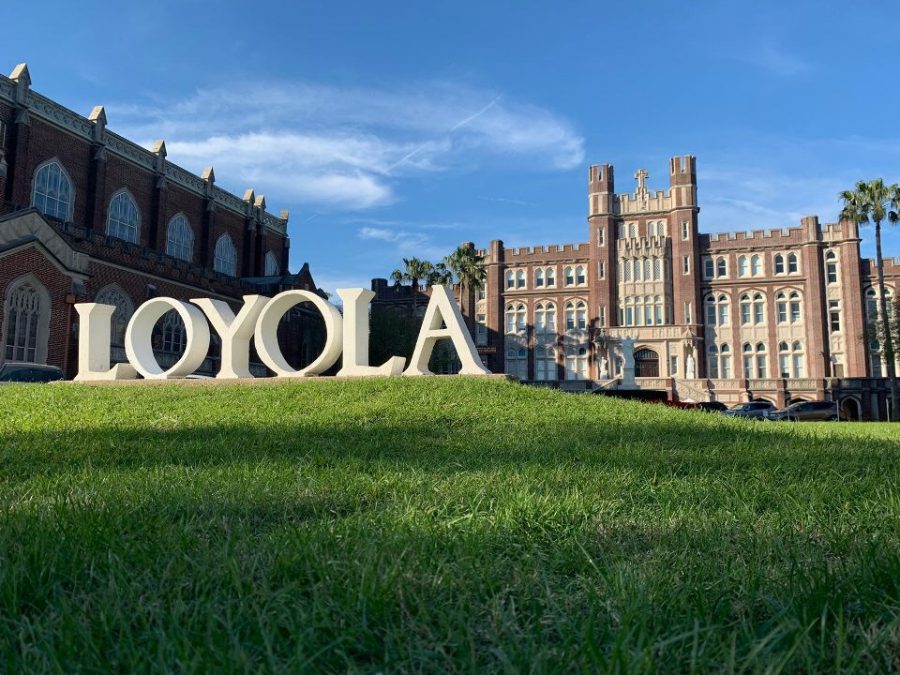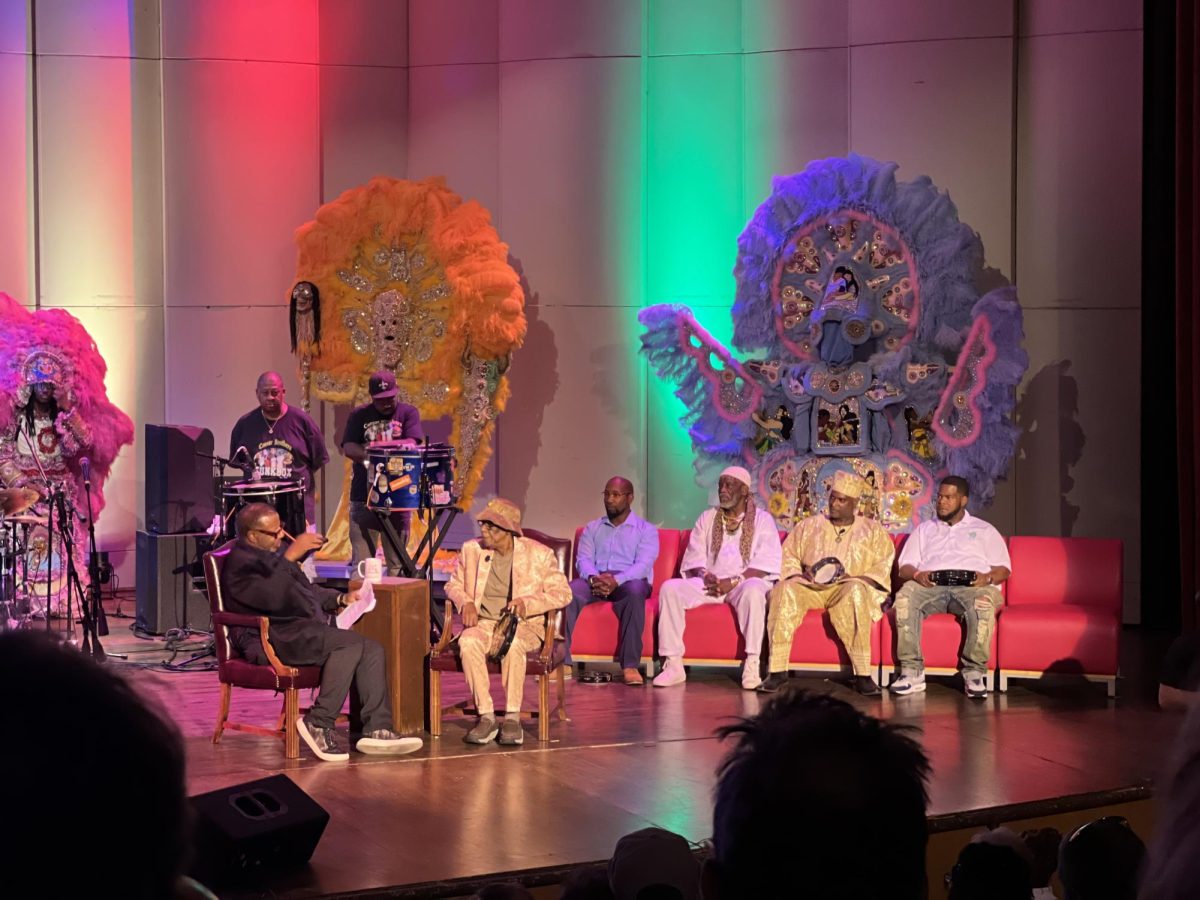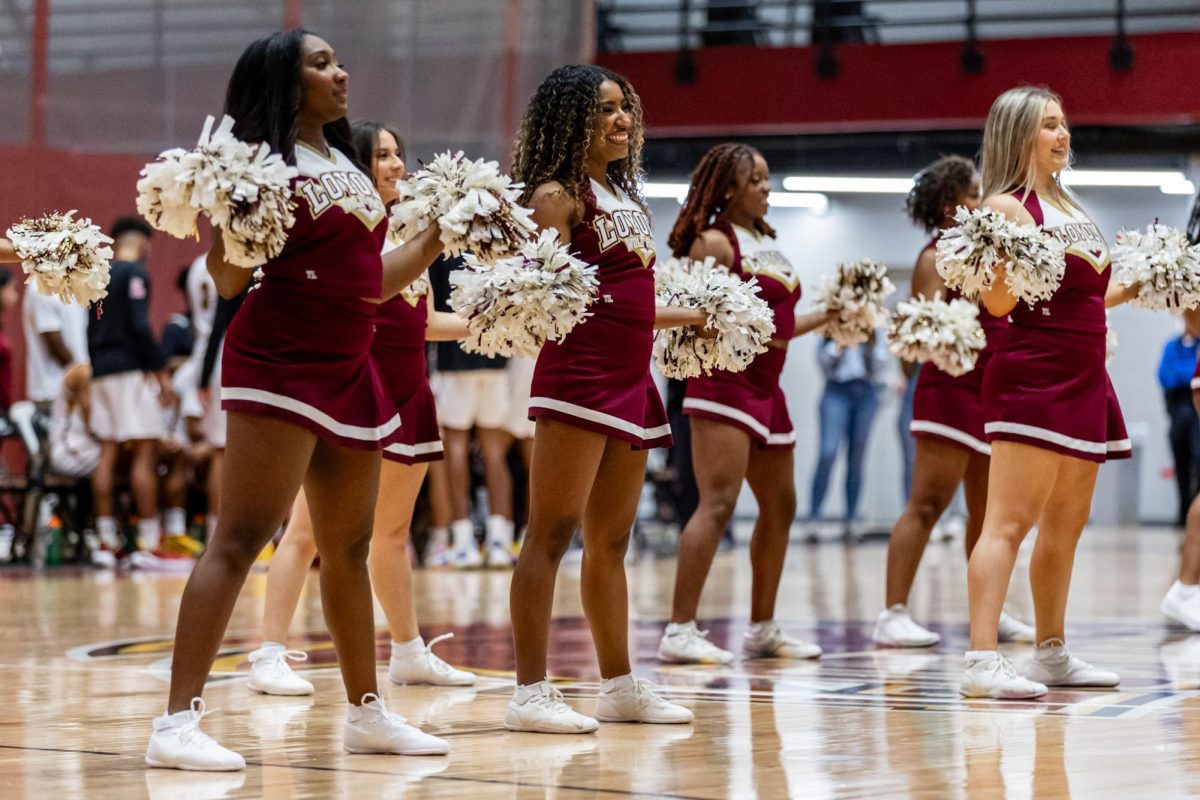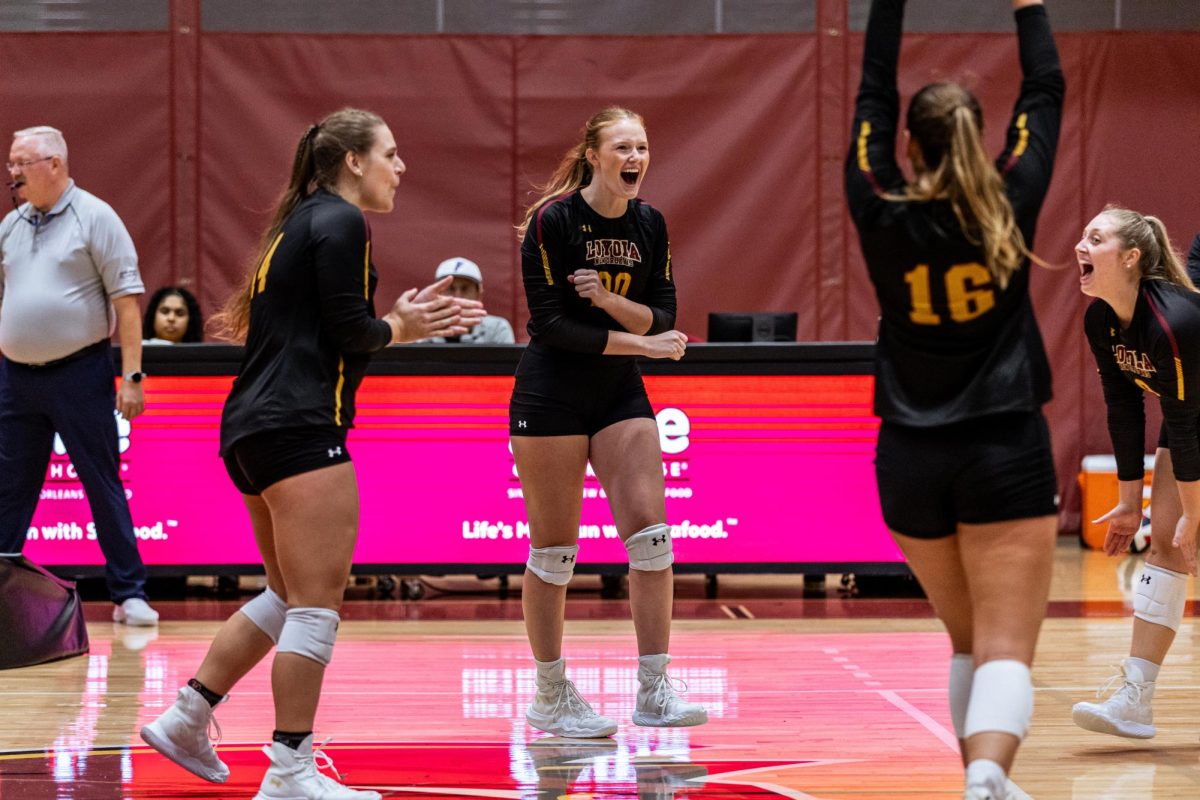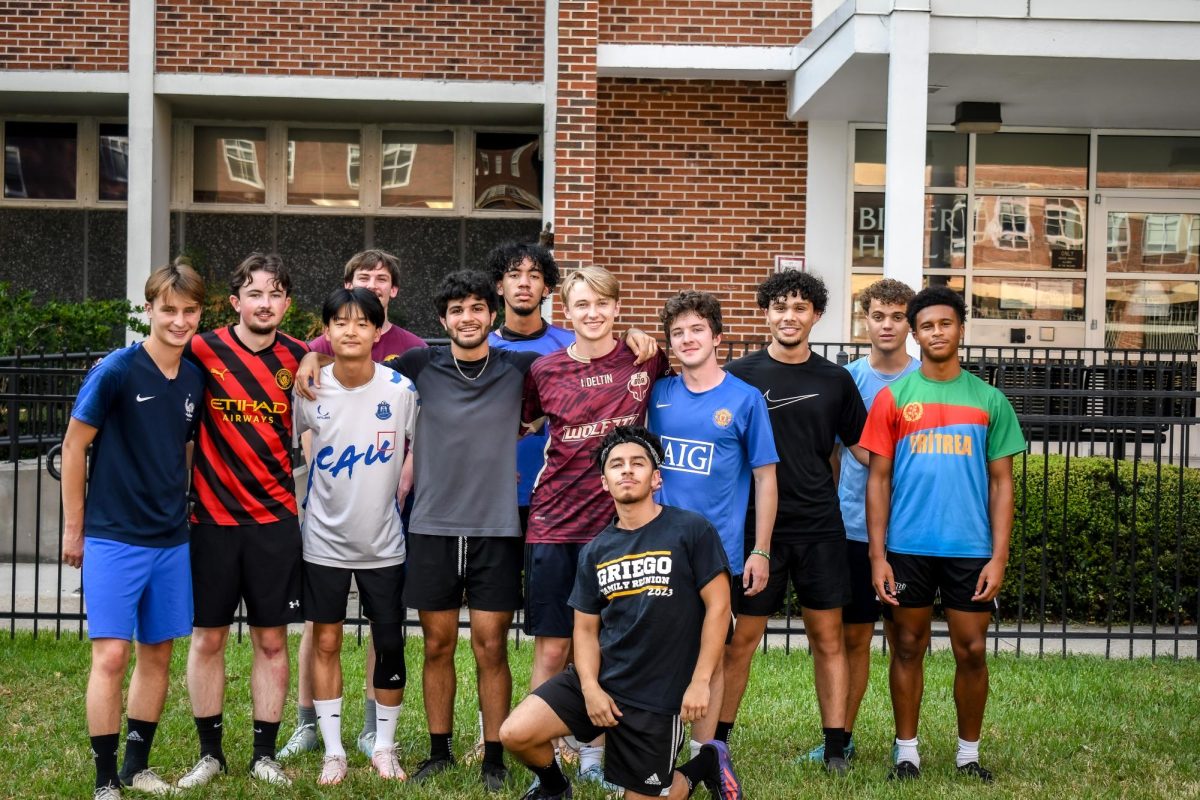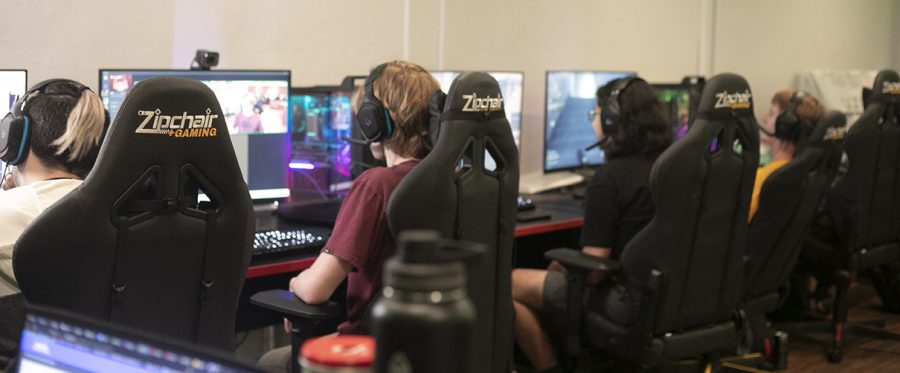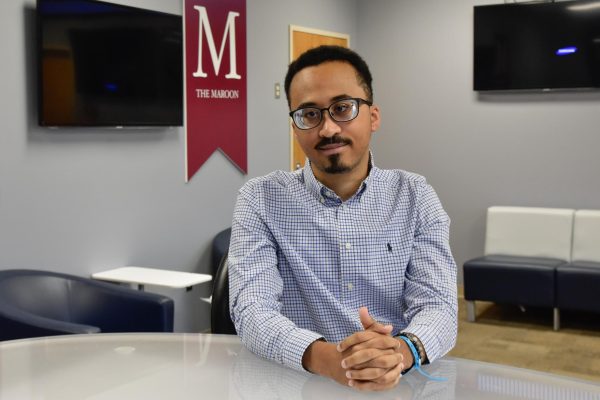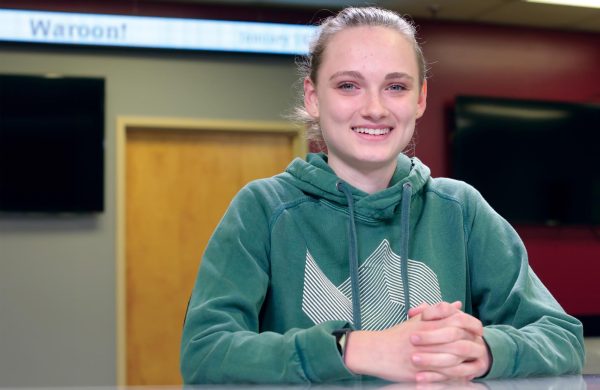Loyola New Orleans is a proudly diverse institution that caters and serves as an incubator for ideas to a variety of students from different countries, states, ethnicities, cultural, and socioeconomic backgrounds. One area that sentiment is exemplified is on the playing fields (and courts) where the Wolf Pack roam. Loyola’s student athletes are often at the forefront of the image the university presents to the larger outside world, and I sat down with some of Loyola’s Black student athletes to get their thoughts on how Loyola has made them feel at home.
“I started my college career at a junior college in Pensacola, Florida, which is a couple hours from my hometown,” psychology senior and volleyball middle blocker Amaya Bazemore said.
“I was looking to play at the next level, and I kind of fell in love with the school, the city of New Orleans and its culture, so I decided I wanted to play here. So the diversity here was a big reason I chose to come, so it’s been really easy to find a supportive community of people here,” she said.
The diversity on campus was a crucial factor for another transfer athlete – finance senior and volleyball outside hitter Simone Tyson, who arrived at Loyola three years ago from Fairfield University in Connecticut.
Tyson graduated high school in 2020, so when she got to Fairfield, she wasn’t able to play volleyball until the spring.
Although Tyson loved her time at Fairfield, she felt there was a lack of diversity in their student body.
“I didn’t really fit in there. I needed more than just a good volleyball team to stay at a school,” she said. “When I came to New Orleans to visit schools in the area, I met coach Jesse [Zabal], and we had a great conversation about the values of the team and the culture here.”
Tyson said the campus was beautiful, and she loved everything Loyola has to offer both on and off the volleyball court.
“I committed here because I felt like I could really find myself here,” she said.
And once student-athletes land on Loyola’s campus, finding a community isn’t difficult because of the resources the school provides to its student-athletes, according to women’s basketball team guard Taylor Thomas.
“It’s been really easy to be a Black student athlete here at Loyola,” she said. “I don’t feel like I’m treated any differently. I feel the opposite actually, and I feel like I was welcomed with open arms and treated fairly here, and that’s why I’ve spent five years playing here.”
Men’s basketball guard Leonard Jackson III expressed similar sentiments, saying he was able to find community by hanging out in the One Loyola Multicultural Center.
“I’ve made a lot of friends there and even found some of my teammates there as well, so that room has played a big role in helping me find a community,” he said.
Jackson said he recognizes that being a Black student athlete is a privilege, and he views being able to share that privilege with other people who look like him as a blessing.
Because of the welcoming community student athletes have been able to find during their time at Loyola, they’ve been able to focus on maximizing their abilities on and off the playing field.
This is the experience of women’s basketball forward Sandra Cannady, who said she came to Loyola because she felt comfortable here.
“Because of that [comfort], I’ve been able to focus on achieving goals we set throughout the season and being the best me,” she said. Cannady is the reigning Southern States Athletic Conference Women’s Basketball Player of the Year.
Tyson believes Loyola has done a great job of recruiting diverse student athletes.
“There is way more diversity here than at my last school, even with the school’s history as a predominately white institution, they do a great job of maintaining diversity across campus, especially in the athletic department,” he said.
Jackson said he feels Loyola has always been a place where people can share their different ideas and not be criticized and shamed.
“And that is why I love to not only play basketball here, but be a student here as well,” he said.


